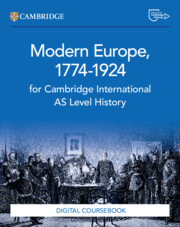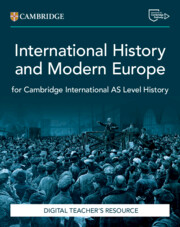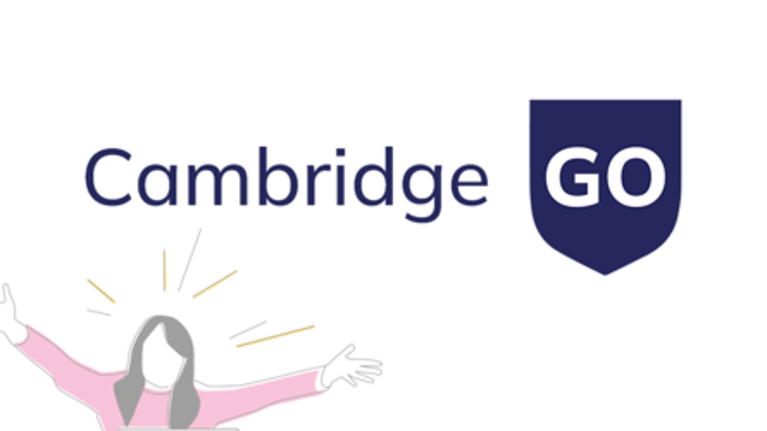Cambridge International AS Level History Modern Europe 1774–1924 Coursebook with Digital Access (2 Years)
Overview
This digital coursebook supports students as they explore European history. This edition offers a variety of activities, including source work and practice questions, to help students build a deep understanding of key historical concepts and develop essential skills. Activities throughout each chapter encourage independent learning, and with opportunities for reflection. This edition brings modern European history to life, with engaging features to spark discussions and deepen understanding. Suitable for the Cambridge International AS Level History syllabus (9489/9981) for examination from 2027, this coursebook also provides digital access, offering digital resources and answers on Cambridge GO.
Features
- Each chapter begins with a detailed timeline that helps students understand the chronological order of significant events. This aids in developing a clear contextual framework for the period studied.
- Varied activities, including individual, pair, group, and class tasks. These are scaffolded to provide step-by-step support, gradually increasing in complexity to develop higher order thinking skills like analysis and inference.
- Students practise source analysis through a mix of cartoons, photos, and texts. This practice is designed to enhance students' ability to critically evaluate historical evidence.
- Clear definitions of key subject-specific terminology are provided, supporting students in understanding and using historical language accurately.
- Short descriptions of important historical figures highlight their principal achievements.
- Reflection activities direct students to assess their approach to tasks, fostering metacognitive thinking. These encourage students to consider not just what they did well or poorly, but why and how they can improve.
- Self-evaluation checklists at the end of each unit, allow students to rate their confidence understanding the content. This new feature helps students identify areas for further study and revision.
- 'Practice questions' and 'Improve Your Answer' features challenge students to apply their knowledge and refine their responses.
Contents
- How to use this series
- How to use this book
- Getting started with Cambridge International AS Level History
- Chapter 1: France, 1774- 1814
- Introduction
- 1.1 What were the causes and immediate consequences of the 1789 revolution?
- 1.2 How and why did France become a republic by 1792?
- 1.3 How well was France governed in the period 1793-99?
- 1.4 What caused the rise and fall of Napoleon Bonaparte?
- Chapter 2: Liberalism and nationalism in Germany, 1815-71
- Introduction
- 2.1 What were the causes of the revolutions of 1848?
- 2.2 What happened during the 1848?49 revolutions and what were their consequences?
- 2.3 Why was Bismarck appointed as Minister-President and what were his aims in the period up to 1866?
- 2.4 How and why was German unification achieved by 1871?
- Chapter 3: Russia from autocracy to revolution, 1855-1924
- Introduction
- 3.1 What challenges faced the Tsarist regime in between 1855 and 1894?
- 3.2 What were the causes and outcomes of the 1905 Revolution up to 1914?
- 3.3 How and why did the Bolsheviks seize power in October 1917?
- 3.4 How were the Bolsheviks able to consolidate their power up to 1924?
- Chapter 4: Preparing for assessment
- Introduction
- 4.1 Overview of assessment and assessment objectives
- 4.2 Understanding what a question is asking you to do
- 4.3 Revision techniques
- 4.4 Assessment preparation
- 4.5 A final note
- Glossary
- Acknowledgements.
Brighter Thinking Blog
Keep up to date with the latest classroom tips and educational trends from our brighter thinkers.
Visit the blogCatalogues and Ordering
Looking for something in particular or just browsing? View our catalogues to see our full range of print and digital books.
View and downloadAdvice on useful tools
Advice on useful tools, activities and timetabling from teachers experiencing school closures.
Cambridge GO
All our supporting resources have now moved to Cambridge GO – the new home for your Cambridge digital content.
Listen to our podcast
Listen to our podcast to discover teaching inspiration & advice from leading educational thinkers.






